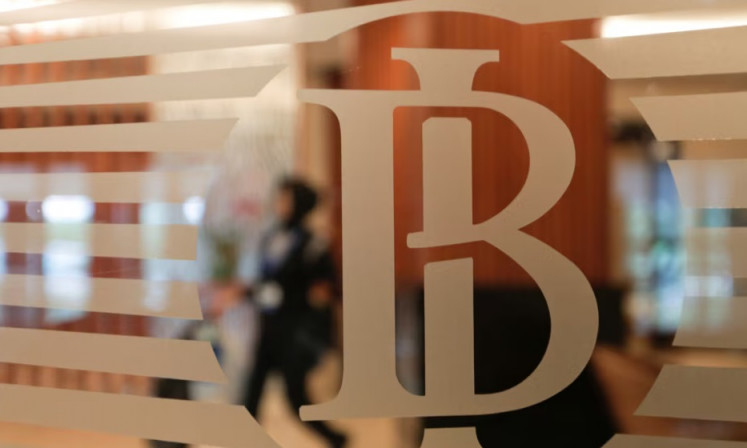Popular Reads
Top Results
Can't find what you're looking for?
View all search resultsPopular Reads
Top Results
Can't find what you're looking for?
View all search resultsRattan furniture exports hit critical low in August
Exports of Indonesian rattan furniture slid to a “precarious” level in August as demand from the recession-ridden US and Europe, two major markets for local manufacturers, dried up further, the Indonesian Furniture Industry and Handicraft Association (Asmindo) said on Tuesday
Change text size
Gift Premium Articles
to Anyone
E
xports of Indonesian rattan furniture slid to a “precarious” level in August as demand from the recession-ridden US and Europe, two major markets for local manufacturers, dried up further, the Indonesian Furniture Industry and Handicraft Association (Asmindo) said on Tuesday.
“Indonesian exports remain fragile because the US and Europe are still [financially] ailing. Furthermore, there’s no guarantee that they will recover in the next two years,” said Ambar Tjahyono, the chairman of Asmindo.
According to Ambar, demand had shown signs of strengthening in March when exports hit US$23.6 million, or 25 percent higher than the same month last year. The number was also 54.1 percent more than figures in January.
“Buyers from the US and Europe still possessed purchasing power in March because they were stocking up their merchandise. But this purchasing power dropped as the sales they made fell too,” he noted.
Consequently, demand from both markets nose-dived after March, with exports touching a “precarious” low of $11.2 million by August. The figure was 4.8 percent less than the same period in 2011.
The waning demand was reflected in the lower-than-expected total transactions generated during the 2012 International Furniture and Craft Fair Indonesia (IFFINA), an annual exhibition organized by the association to link up international buyers with local manufacturers.
Organizers saw transactions reach $350 million, lower than the $480 million booked in the previous year.
“The effects of the world economy are more potent than the conditions within ours,” he said, adding that numbers were expected to slip further this month, possibly bringing figures to below $10 million.
“However, there might be a slight revival in November because Christmas is nearing,” he said, referring to the end-of-year shopping season.
He further added that weak rattan exports, which would unlikely meet the export target of $250 million, mirrored the conditions faced by the furniture industry.
According to him, the industry is unlikely to meet the $1.8 billion export target set by the government, with the association believing that the target should be at $1.7 billion instead.
A cure to the ailing exports, he said, was to target robust Asian countries such as India, China, Taiwan and South Korea as major markets.
“The association and the government needs to discuss how to develop an inter-Asian market. We can tap into these Asian markets by conducting promotional activities in such countries or by organizing an international-standard exhibition here to draw their visits,” he said.
He reiterated that besides drawing buyers, the government also had to create a buffer stock, especially in terms of raw rattan. With buffer stocks, the government could prevent rattan farmers from over-supplying raw rattan to manufacturers, hence triggering a fall in local rattan prices.
The government banned the export of raw rattan and semi-processed rattan early this year.
He added that the association was also taking steps to aid local furniture manufacturers, especially those operating small-scale businesses.
According to him, the association was forming teams tasked with helping small-scale furniture manufacturers to obtain the Timber Legality Verification System (SVK) certification.
The certificate, issued by the Indonesian government, is internationally recognized proof that the wood and wood-based materials contained in the furniture underwent environmentally friendly processes.
The certificate is a export prerequisite to countries in the European Union, which have signed a legal timber trade agreement with Indonesia.










